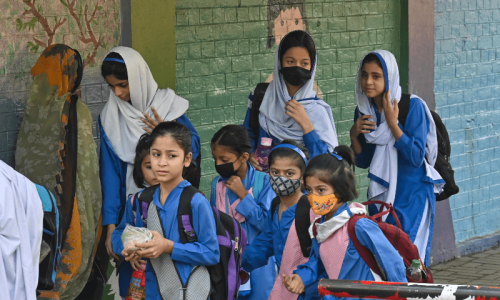WASHINGTON, Sept 28: The US House of Representatives has approved a historic and controversial nuclear deal with India, allowing New Delhi to purchase nuclear technology from the United States.
As many as 298 Congressmen voted for the deal while 117 voted against. One abstained. President George W. Bush congratulated the House on the vote.
“The passage of this legislation by the House is another major step forward in achieving the transformation of the US-India relationship,” he said, urging the Senate now to adopt the bill.
The US Senate Foreign Relations Committee has already approved the bill by 19 to 2 votes. A full senate hearing is scheduled for next week.
The US administration has rejected Islamabad’s request for a similar agreement.
Washington says the deal is India specific and cannot be replicated for others.
The deal can encourage Pakistan to negotiate a similar agreement with China.
The deal is strongly opposed by the anti-nuclear lobby in the United States and abroad which says that it would encourage nuclear proliferation in the world.
The Bush administration considers the deal one of its major foreign policy achievements and wants it approved before a new US president takes office in January. President Bush had hoped to win congressional approval before India’s Prime Minister Manmohan Singh came to the White House last week but it did not happen.
Opponents of the deal say the agreement will undermine non-proliferation efforts and make it more difficult to dissuade other countries not to develop nuclear weapons.
Congressman Edward Markey, a senior member of the House Energy and Commerce Committee, denounced the vote. “This is a terrible bill that threatens the future of the global nuclear non-proliferation regime,” he said.
“This is a debate about Iran. This is a debate about North Korea, about Pakistan, about Venezuela, about any other country in the world that harbours the goal of acquiring nuclear weapons,” he said.
Since conducting its first nuclear weapons test in May 1974, India has refused to sign the Nuclear Non-proliferation Treaty, something critics say should happen before India gets full access to global nuclear trade.
Supporters of the deal say the agreement recognises what they call India’s responsible handling of its nuclear programme, helps non-proliferation by subjecting more than half of India’s 22 reactors to monitoring, and assists India’s development of a clean energy infrastructure.












































Dear visitor, the comments section is undergoing an overhaul and will return soon.